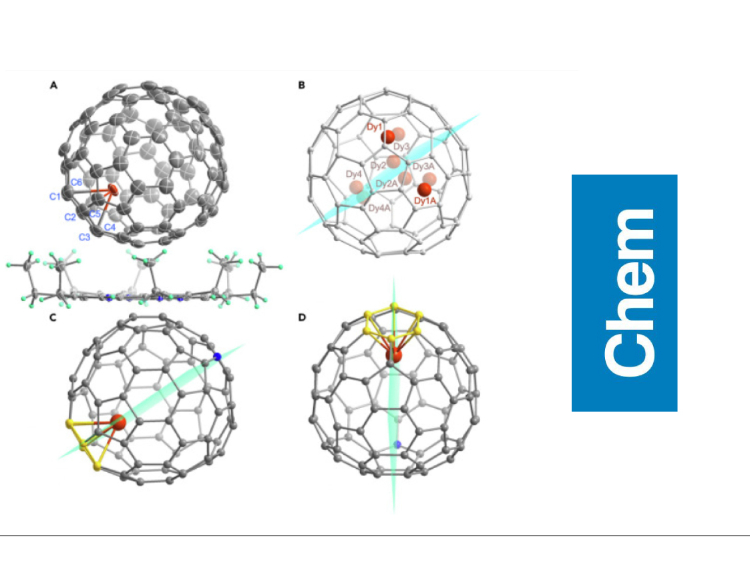
An international team led by the Institute of Molecular Science (ICMol) of the University of Valencia has opened a new path in the research of so-called ‘magnet molecules’. It has developed a nanomagnet of great simplicity and high stability, which is an effective tool for basic science from which the quantum technologies of the future will be based. The work appears published in the journal Chem.
Single molecule magnets (SMM) or molecular nanomagnets are especially interesting for the future of research in quantum technologies. However, its operation at very low temperatures – below 77 K (-196 °C) – and its extreme fragility in the presence of oxygen make it difficult to use in the preparation of devices that allow more sophisticated experimentation to advance in this field of basic science.
The work that ICMol has just published in the journal Chem presents a novel approach to achieve very stable SMMs at a relatively high temperature despite a very weak energy barrier. The molecule proposed in this case is based on a unilaterally coordinated dysprosium ion, using an azafullerene cage that encapsulates a single ion. The team has managed to stabilise the spin state of the complex for 100 seconds up to 45 k, a surprisingly good parameter considering how low the effective barrier that these materials present is, which suggests that the physical mechanism that governs their properties is not the usual one.“The problem of losing the use of quantum phenomena when the temperature rises is quite general. Therefore, everything we learn with our molecules about decoupling temperature and quantum behaviour can be useful for research in quantum science and technologies”, comments Alejandro Gaita-Ariño, co-author of the work.
“The molecule can be further optimised, and its chemical stability means that it has the potential to be used in quantum nanodevices”, adds the scientist.The work is signed, among others, by Alejandro Gaita Ariño, distinguished researcher of the CIDEGenT program of the Valencian Government; the full professor of Inorganic Chemistry and director of ICMol, Eugenio Coronado, and Ziqi Hu, who currently works at the University of Science and Technology of China.
As a matter of added interest, it should be noted that the modelling of the magnetic properties of this compound has been carried out using a very low computational cost program, programmed at the ICMol by Gérliz Gutiérrez-Finol, research support technician and co-signer of the article. This work thus participates in the trend called ‘frugal computing’, which tries to reverse the acceleration of the carbon footprint of scientific calculation supercomputers.
The Institute of Molecular Science (ICMol) of the University of Valencia focuses its work on the molecular aspects of nanoscience and on the study of materials that have magnetic, electrical or optical properties. Since 2015, it has been a centre recognised ministerially as a María de Maeztu Unit of Excellence.
Link to Chem article: https://www.cell.com/chem/fulltext/S2451-9294(23)00406-0

